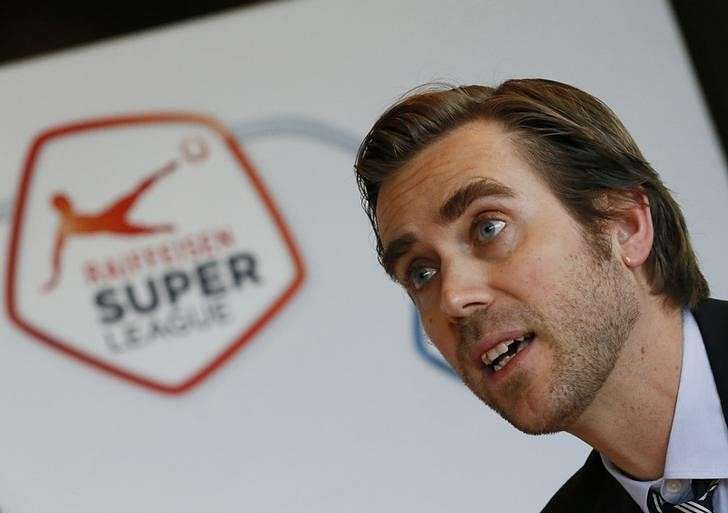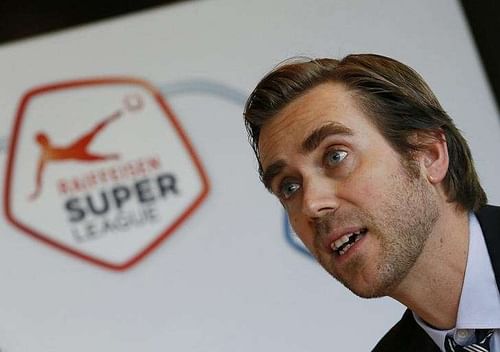
Swiss league ponders changes as Basel dominance endures

By Brian Homewood
ZURICH (Reuters) - FC Basel's dominance of Swiss football, aided by lucrative revenue streams from Champions League appearances, has forced the country's domestic league to explore new formats that might make the season less predictable.
Claudius Schaefer, CEO of the Swiss Football League (SFL), told Reuters he feared looming changes to the distribution of Champions League revenue could entrench Basel's supremacy further still.
Basel this year won their eighth successive league title, wrapping it up with six games to spare.
"The most important thing in the championship is the competitive balance," Schaefer said in an interview. "If you have the same champions eight times in a row, you have to be worried, so we are looking into reforms."
Schaefer said Basel were a well-managed club who deserved their success.
"They haven't had the owners or president changing every couple of years like some other clubs," he said.
"It's too simple to argue that FC Basel are where they are only because of the UEFA payments."
But he said the money the club pocketed from its European forays gave them a clear advantage in a league where the average revenue, according to a UEFA benchmarking report is, 21.1 million euros ($22.93 million) per season.
Basel have played in the Champions League group stage six times since 2008, earning 17.85 million euros from their participation in 2014/15 alone.
SPLIT WINNINGS?
Schaefer said this amount would rise dramatically under a Champions League new format which will come into effect in 2018. He calculated Basel could earn around 40 million euros each season that they qualify from 2018/19.
"This is a little less than the (entire) budget for our second biggest club Young Boys."
Basel did not respond to requests for comment.
Playing Champions League football has also allowed Basel to showcase young talent such as Breel Embolo, sold to Schalke 04 last year.
"I don't think Embolo could have been transferred for 25 or 30 million euros to Schalke without playing in the Champions League," he said.
The Swiss league, which has 10 clubs who play each other four times a season, is a world away from the major European leagues, with average attendances of under 10,000.
Schaefer said the SFL would distribute a total 40 million francs ($39.77 million) to the first and second division clubs from television and marketing next season, double the current amount but only a fraction of what bigger leagues pay.
He said he hoped it would be possible to persuade UEFA to reconsider the changes planned for the 2018-21 Champions League cycle.
In the meantime, he said the Swiss league was considering splitting its league competition into stages or groups as other countries such as Denmark, Bulgaria and Belgium have done.
Another possibility is that any team taking part in the Champions League split their winnings.
"We discussed this at the general assembly and it decided not to go further," he said.
Schaefer said he expected the idea to re-surface but that ultimately it should be UEFA setting the guidelines on how Champions League revenues are better allocated.
"The ones handing out the money should divide it up better and it shouldn't be the role of the national leagues to do this."
($1 = 0.9201 euros)
(Writing by Brian Homewood; editing by Richard Lough)